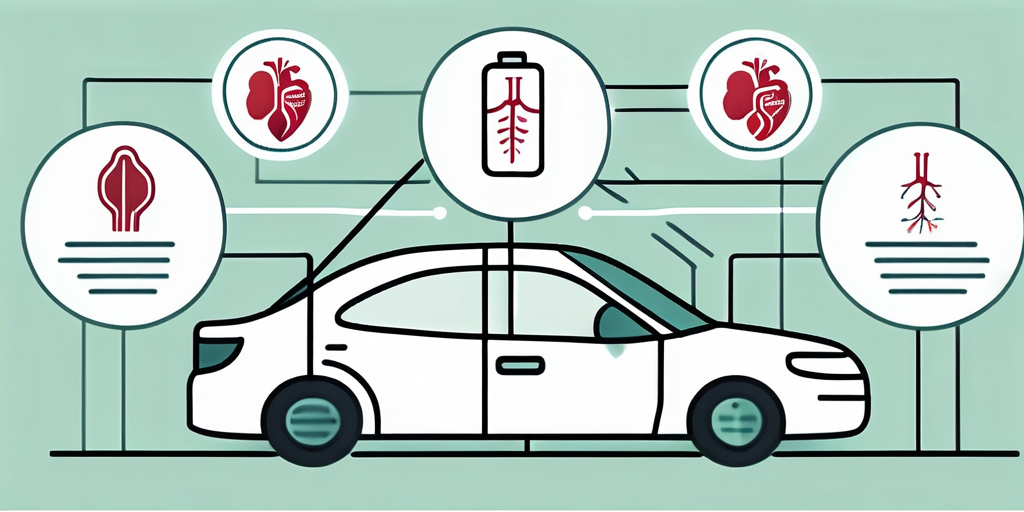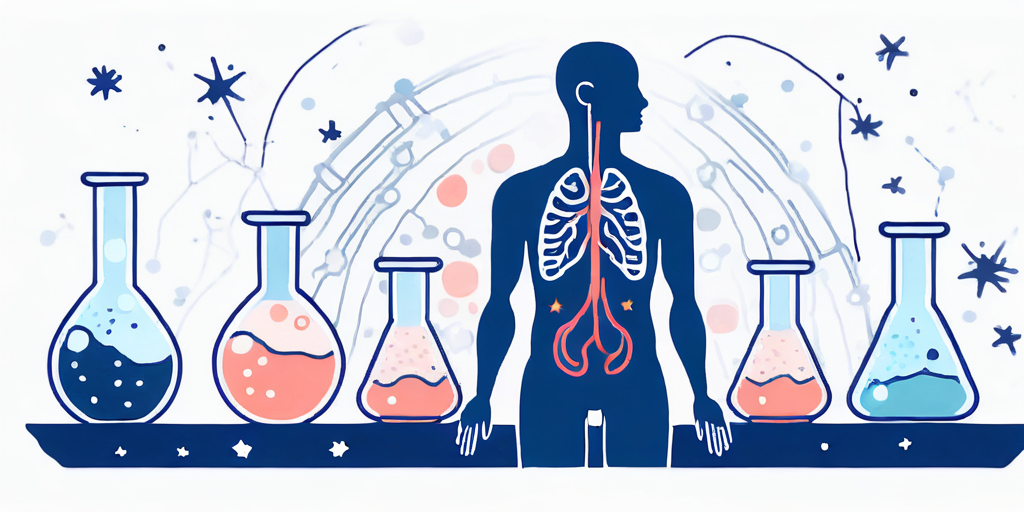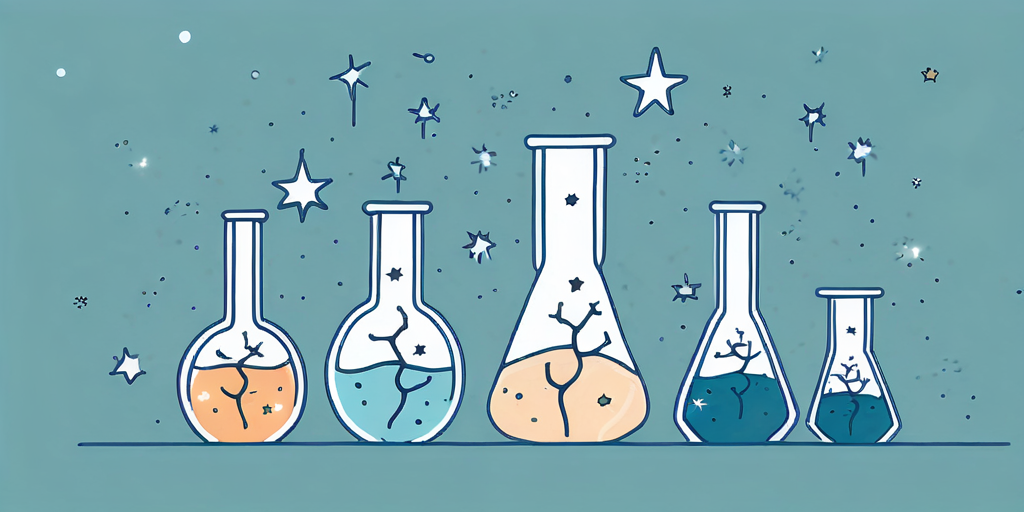
How to Donate Your Body to Science
Donating your body to science is a selfless act that can have a profound impact on medical research and education. By making this unique contribution, you can leave a lasting legacy that benefits humanity long after you’re gone. In this article, we will explore the reasons why donating your body to science is important, the donation process, eligibility criteria, alternative options, and the benefits it can bring. We will also address common misconceptions and provide resources to help you make an informed decision. Let’s dive in!
Why Donate Your Body to Science?
Donating your body to science provides an invaluable resource for medical research and education. It allows scientists, doctors, and educators to gain a deeper understanding of the human body and its intricacies. By studying real human anatomy, researchers can advance medical knowledge, develop new treatments, and improve surgical techniques.
Moreover, donating your body to science gives you the opportunity to contribute to society in a truly meaningful way. It’s a selfless gesture that can help future generations live healthier lives. Knowing that you played a part in advancing medical science can bring a sense of fulfillment and purpose to your life.
When you donate your body to science, you are also supporting medical training programs. Medical students rely on anatomical donations to learn about the intricacies of the human body in a hands-on way. By offering your body for educational purposes, you are directly impacting the quality of medical education and training that future healthcare professionals receive.
Furthermore, donating your body to science can lead to breakthroughs in medical research that have the potential to save countless lives. Your selfless act could contribute to the discovery of new treatments for diseases, the development of innovative surgical procedures, or the advancement of medical technologies. The impact of your donation could reverberate far into the future, shaping the landscape of healthcare for generations to come.
The Impact of Body Donation on Medical Research
When you donate your body to science, you become a vital resource for medical research. Researchers can use donated bodies to study a wide range of medical conditions, from cardiovascular diseases to neurological disorders. By examining the body’s organs, tissues, and cells, scientists can gain insights into the causes of diseases and develop new treatments.
Body donation also plays a crucial role in the training of healthcare professionals. Medical students, residents, and surgeons rely on cadavers to learn anatomy, practice surgical procedures, and refine their skills. The hands-on experience gained through working with real human bodies enhances their ability to provide quality care to patients.
Moreover, body donation contributes to the advancement of medical technology. Through the use of cadavers, researchers can test new surgical techniques, medical devices, and treatment methods in a controlled environment. This allows for innovation and progress in the field of medicine, leading to improved patient outcomes and quality of care.
Additionally, donated bodies are essential for forensic research and education. Forensic scientists use cadavers to study decomposition, trauma patterns, and other aspects of post-mortem changes. This knowledge is crucial in solving crimes, identifying victims, and providing closure to families of the deceased.
Understanding the Donation Process
The donation process begins with making a decision while you are alive to donate your body after death. It’s important to discuss your wishes with your loved ones and ensure that they are aware of your decision. To facilitate the donation process, you should also contact a reputable body donation program or research institute in your area. They will guide you through the necessary paperwork and provide detailed instructions on what to do when the time comes.

After your passing, the body donation program will arrange for the transportation of your body to their facility. There, they will respectfully handle the body and ensure it is properly utilized for medical research or education. It’s important to note that most body donation programs cover the cost of transportation and cremation of the body. However, it’s advisable to inquire about any specific requirements or costs associated with the program you choose.
Once your body is received by the donation program, it undergoes a thorough examination to ensure it meets the criteria for donation. This examination includes checking for any infectious diseases or conditions that may impact the usability of the body for research or education purposes. If the body is deemed suitable for donation, it will be preserved according to the program’s protocols to maintain its integrity for future use.
Furthermore, many body donation programs offer the option for donors to specify any preferences they may have regarding the use of their body. For example, some donors may express a desire to contribute specifically to medical education, while others may prefer their donation to support research in a particular field. By communicating your preferences to the donation program in advance, you can ensure that your donation aligns with your values and intentions.
Eligibility Criteria for Donating Your Body
To donate your body to science, you typically need to meet certain eligibility criteria set by the body donation program. While specific requirements may vary, some common criteria include:
- Age: Many programs accept donations from individuals of all ages, while others have age restrictions.
- Physical Condition: Generally, individuals without communicable diseases or certain medical conditions are eligible for body donation. However, some programs may accept individuals with specific medical conditions for research purposes.
- Location: Body donation programs operate in specific regions, so it’s essential to identify programs in your area.
- Advanced Planning: It’s recommended to make arrangements and complete the necessary paperwork well in advance to ensure a smooth donation process.
Contacting a body donation program or research institute in your area will provide you with detailed information on their specific eligibility criteria and the donation process.
Furthermore, it’s important to note that some body donation programs may have additional requirements such as weight restrictions or the absence of certain surgical procedures. These criteria are in place to ensure that the donated bodies are suitable for the intended research or educational purposes.
In addition to meeting the eligibility criteria, individuals interested in donating their bodies to science should also consider discussing their decision with family members or loved ones. It can be a sensitive topic, and ensuring that your loved ones are aware of your wishes can help facilitate the donation process and alleviate any concerns they may have.
Alternatives to Body Donation
While donating your body to science is a remarkable act of generosity, it’s not the only option available. If body donation does not align with your personal beliefs or circumstances, there are alternative options to consider:
- Organ Donation: Choosing to donate your organs can save lives and improve the quality of life for those in need.
- Tissue Donation: Donating tissues such as corneas, heart valves, and bones can also positively impact medical treatments and research.
- Anatomical Gifts: You may choose to donate your body to a medical school or university for use in educational purposes.
By exploring these alternative options, you can find a way to contribute to medical advancements that aligns with your values and beliefs.
Another alternative to body donation is whole-body donation for scientific research. This option allows for the study of the entire body in various medical fields, such as anatomy, pathology, and forensic science. By donating your body for research purposes, you can help advance medical knowledge and contribute to the training of future healthcare professionals.
Furthermore, individuals can consider donating their bodies to medical research organizations that focus on specific diseases or conditions. For example, donating your body to a research institute specializing in cancer studies can provide valuable insights into the disease and potentially lead to breakthrough treatments. This targeted approach allows donors to support research areas that are personally significant to them, making a meaningful impact in the field of medicine.
Benefits of Donating Your Body to Science
Donating your body to science offers several benefits, both for society and for the individuals involved:
- Advancing Medical Knowledge: Your donation can facilitate groundbreaking discoveries and contribute to medical breakthroughs.
- Improving Patient Care: Healthcare professionals can enhance their skills and provide better care through hands-on training with donated bodies.
- Cost Savings: Choosing body donation eliminates costly funeral arrangements, providing financial relief for your loved ones.
- Fulfillment and Legacy: Your contribution to medical science can leave a lasting impact and bring a sense of fulfillment and purpose to your life.
Moreover, donating your body to science can also have a significant impact on future generations. By allowing researchers and medical students to study real human anatomy, you are contributing to the education of future healthcare professionals. This hands-on experience with human cadavers is invaluable in teaching anatomy in a way that textbooks and models cannot replicate.
Additionally, choosing to donate your body to science can lead to the development of new surgical techniques and medical procedures. Surgeons and researchers rely on the study of human bodies to perfect their skills and innovate in the field of medicine. Your donation could potentially play a role in advancing surgical practices and improving patient outcomes in the future.
Common Misconceptions About Body Donation
Body donation is often surrounded by misconceptions that can deter individuals from considering this noble act. Let’s debunk some of the most common misconceptions:

One prevalent misconception is the fear of lack of respect for the donated body. However, reputable body donation programs prioritize treating donated bodies with the utmost respect and dignity. Before accepting any donations, these programs ensure that proper protocols are in place to handle the bodies with care and reverence throughout the donation process.
Another misconception that may arise is the concern about religious conflicts. Contrary to popular belief, many major religions actually support body donation as an act of charity and selflessness. While some individuals may still have reservations based on their religious beliefs, it’s important to note that consulting with religious leaders can provide clarity and guidance on how body donation aligns with specific faith traditions.
- Lack of Respect: Reputable body donation programs treat donated bodies with utmost respect and dignity.
- Religious Conflicts: Many major religions support body donation as an act of charity and selflessness. However, it’s important to consult with religious leaders if you have specific concerns.
- Financial Burden: Reputable body donation programs typically cover transportation and cremation expenses, relieving any financial burden on your loved ones.
- Multiple Donations: Donated bodies are used for individual research or educational purposes, and respectful cremation follows. There is no risk of multiple donations or lack of proper handling.
It’s crucial to consult reputable sources and have open conversations with your loved ones to dispel any misconceptions and make an informed decision about body donation.
Honoring Your Wishes: Making a Body Donation Plan
Creating a body donation plan ensures that your wishes are respected and followed after your passing. To get started, here are a few essential steps:
- Do Your Research: Identify reputable body donation programs or research institutes in your area. Research their procedures, eligibility requirements, and any specific instructions they provide.
- Talk to Loved Ones: Discuss your decision with your family and loved ones to ensure they understand and support your wishes. Clarify any concerns or questions they may have.
- Document Your Decision: Make your decision official by completing the required forms and legal documentation provided by the chosen body donation program.
- Inform Others: Inform your healthcare provider, lawyer, and executor of your plans to donate your body to science.
- Review and Update: Regularly review your body donation plan to ensure it aligns with your current wishes and make any necessary updates.
- Notify Your Program: Finally, inform the chosen body donation program about your decision and keep a copy of all relevant documents with your important paperwork.
By taking these steps, you can ensure that your body donation plan is well-documented and that your wishes will be honored when the time comes.
The Role of Body Donation in Medical Education
Body donation plays a crucial role in the education and training of future healthcare professionals. Medical students, residents, and surgeons learn vital skills through hands-on experience with real human bodies. This practical training enhances their ability to provide compassionate and effective care to patients.
Moreover, body donation allows healthcare professionals to learn about anatomical variations and the effects of different diseases on the human body. This knowledge enables them to diagnose and treat patients accurately and helps develop new medical interventions to improve patient outcomes.
Resources and Organizations for Body Donation
If you are considering body donation, it’s essential to connect with reputable organizations that facilitate this process. Some well-known resources and organizations include:

- National Funeral Directors Association’s Body Donation Resource List
- Science Care
- MedCure
- Anatomical Board of the State of Florida
- United Tissue Network
These organizations can provide further information about body donation and guide you through the process to ensure your wishes are honored.
Conclusion
Donating your body to science is a noble and impactful decision. By contributing to medical research and education, you can help advance medical knowledge, improve patient care, and leave a lasting legacy. Understanding the donation process, eligibility criteria, and alternative options empowers you to make an informed decision that aligns with your values and beliefs.
Take the time to have open conversations with your loved ones and consult reputable resources when considering body donation. By following the necessary steps, you can ensure that your wishes are honored, and your donation makes a difference in the world of medical science.
So, take the first step today and explore the possibility of donating your body to science. Your selfless act can contribute to breakthroughs that will benefit countless lives in the future.


